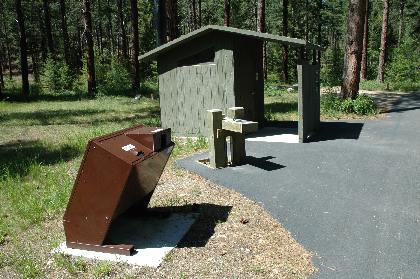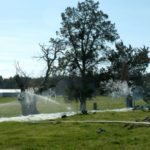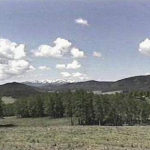Giarda – No fun at all
Lyme disease, West Nile disease, and Poison ivy – these are just a few potential dangers you’ll find in the forest. Another problem that is becoming more common – Giardia. Although more cases are being seen across the country each year, medical staff remain unfamiliar with this nasty intestinal bug. Hope this articles helps you be informed.
What is Giardia?
It is a single cell parasite that can cause severe gastrointestinal illness. It is often contracted by ingesting contaminated food or water from its natural source. Where does it come from? Giardia was once called “Beaver fever” because people saw a connection between the disease and drinking water were beaver lived. Today it is recognized as having a much broader link with wildlife. Giardia lives in the small intestines of a wide range of animals, leaving the host in its feces. The feces enters the water supply and a waits its next host.
What are the symptoms of giardia?
Diarrhea, stomach cramps, bloating, gas, fatigue, and/or weight loss are all traits of giardia. These symptoms may last weeks and an infected person can be contagious for months.
When do the symptoms appear?
Symptoms are usually noticed about seven to ten day after the parasite is ingested. It must be noted seniors and children are especially susceptible to the effects of this illness and the symptoms may appear sooner than later.
What is the treatment for giardia?
Until professional medical treatment can be found, a bland diet and lots of fluids will help. The professional will prescribe one of several medicines specific for treating giardia. It should be noted 80% of giardia cases are resolved with one series of medication but that leaves 20% who will require additional treatment. (FYI: I was in the 80% group but Fred was one in the 20%.) It is very unlikely someone who has contracted giardia can “cure” the infection without medical assistance.
What can you do to prevent contracting giardia?
One method, most effective if dispersed camping, is boiling all your water. Bring the water to a rolling boil for three to five minutes and than let cool. Use this water for everything from making coffee to brushing teeth even when washing dishes and face. If in a developed campground, boiling your water shouldn’t be necessary unless there is a boil order posted on the water pump/spigot. But you should still wash your hands, away from the communal water spigot, with soap for 15 second or one chorus of “Happy Birthday” (don’t forget under your finger nails) before eating, after using the bathroom, and touching animals. Cook food thoroughly and wash with “safe” water before eating fresh fruit.

The primary key to avoiding giardia is cleanliness. That way your time in our national forests will be a pleasant memory and not an extended visit to the bathroom. (The vault at Charles Waters Memorial campground is nice but not were you want to spend your camping adventure .)






